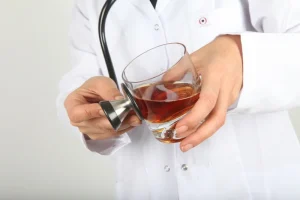
This can help them determine whether it’s safe for you to take Eliquis with your condition. Drinking heavily, especially binge drinking lots of alcohol in one go, is dangerous while taking apixaban. Similarly, there are no known interactions between Eliquis and lab tests.
How we treat alcohol-related liver disease is unfair—it’s time for change
These chemicals help platelets group together to form blood clots. By affecting serotonin and norepinephrine, SSRIs and SNRIs can prevent platelets from grouping together. This is because it can increase the risk of bleeding in your stomach and intestines. If you do drink alcohol, the recommended alcohol consumption is no more than 1 drink a day for a woman, and no more than 2 drinks at a time for a man.
- This is because it can increase the risk of bleeding in your stomach and intestines.
- Your doctor likely won’t prescribe Eliquis if you’ve had an allergic reaction to the drug or any of its ingredients.
- On their own, blood thinners can create a number of health risks and increase the chances of serious bleeding.
- This ultimately affects the delicate balance that doctors hope to achieve while using blood thinners.
Nonsteroidal anti-inflammatory drugs
Scientific evidence about drinking alcohol goes back nearly 100 years—and includes plenty of variability in alcohol’s health effects. Since Eliquis can also cause bleeding, drinking alcohol while taking Eliquis may further increase your risk of bleeding. If you have kidney problems, tell your doctor before starting Eliquis. If your kidneys aren’t working properly, this medication can build up in your body. If you have kidney problems, your doctor may recommend a lower dose of Eliquis for you. Talk with your doctor about the best treatment plan for you.
Interference with Medication Efficacy
The exact mechanisms are complex and multifaceted, but it is known that alcohol can affect the electrophysiology of the heart, altering its normal rhythm. You can also help prevent interactions with Eliquis by taking it exactly as your doctor prescribes. Here are some frequently asked questions about Eliquis and possible interactions.
- However, this interaction hasn’t been studied, and it’s not known for sure if it occurs.
- If any of these effects last or get worse, tell your doctor or pharmacist promptly.
Alcohol-induced gastric ulcers are a particular concern for individuals taking anticoagulants like Eliquis. Since Eliquis works by inhibiting blood clotting to prevent strokes and blood clots, the presence of a gastric ulcer poses a heightened risk of gastrointestinal (GI) bleeding. The combination of a compromised stomach lining due to an ulcer and the blood-thinning effect of Eliquis can significantly amplify the chances of a bleed. Eliquis is the go-to for a host of conditions that necessitate blood thinning.

However, anticoagulants other than Eliquis are usually preferred. This is because more is known about the safety of using certain other anticoagulants during pregnancy than what’s known about Eliquis. Andexxa is also sometimes used if you need emergency surgery while taking Eliquis. Surgery carries a risk of bleeding, and this risk is higher if you’re taking Eliquis. To learn more, see the “Eliquis and surgery” section under “Eliquis interactions” above. However, if you’re taking Eliquis, it’s likely that you have risk factors for ED.
- Eliquis, or apixaban, is a highly selective and reversible inhibitor of Factor Xa.
- It is intended for general informational purposes and is not meant to be a substitute for professional medical advice, diagnosis, or treatment.
- Eliquis may also be present in human milk, and its effect on nursing infants is currently unknown.
- Pradaxa and Eliquis are FDA-approved medications known as direct oral anticoagulants (DOACs), non-vitamin K antagon…
Does Eliquis interact with other drugs?
Ask them what other medications are better options for you. Keeping notes and sharing them with your doctor will help them learn more about how Eliquis affects you. They can then use this information to adjust your treatment https://ecosoberhouse.com/ plan if needed. If you notice bruising during your treatment with Eliquis, talk with your doctor. If this side effect is severe or bothersome to you, your doctor may be able to recommend ways to help prevent it.

- For people who can’t take medication by mouth, Eliquis can also be taken through a nasogastric tube (a thin tube that goes through your nose to your stomach).
- By affecting the process that helps blood clots form, NSAIDs can also increase your risk of bleeding.
- However, if your symptoms are serious and you think you’re having a medical emergency, immediately call 911 or your local emergency number.
- Taking Eliquis with other anticoagulants can raise your risk of bleeding.
- If you have questions about drug interactions that may affect you, talk with your doctor or pharmacist.
- Eliquis starts working within 3 to 4 hours after you take your first dose.
Eliquis is a type of drug called a direct-acting oral anticoagulant (DOAC). It’s sometimes also called a blood thinner, although it doesn’t actually thin your blood. Instead, Eliquis works by attaching to an activated blood clotting factor, called factor Xa.

Eliquis makes it harder for your blood to form clots, which raises your risk of bleeding. While taking Eliquis, you may eliquis and alcohol usage notice that you bruise or bleed more easily than usual. Also, it might take longer than usual for you to stop bleeding.
For more information, see the “Warnings for Eliquis” section below. If you stop taking apixaban, the rate at which your blood clots will return to what it was before you started taking it, usually within a day or two of stopping. Factor Xa is integral to the blood coagulation process as it facilitates the conversion of prothrombin to thrombin, an essential step in blood clot formation. Therefore, by inhibiting Factor Xa, Eliquis effectively disrupts the blood clotting cascade. Heads up that some of these “don’ts” don’t apply if you’re on one of the newer blood thinners, like Rivaroxaban (Xarelto®) or Apixaban (Eliquis®). So, it’s important to check with your healthcare provider to make sure you’re taking the appropriate precautions.

